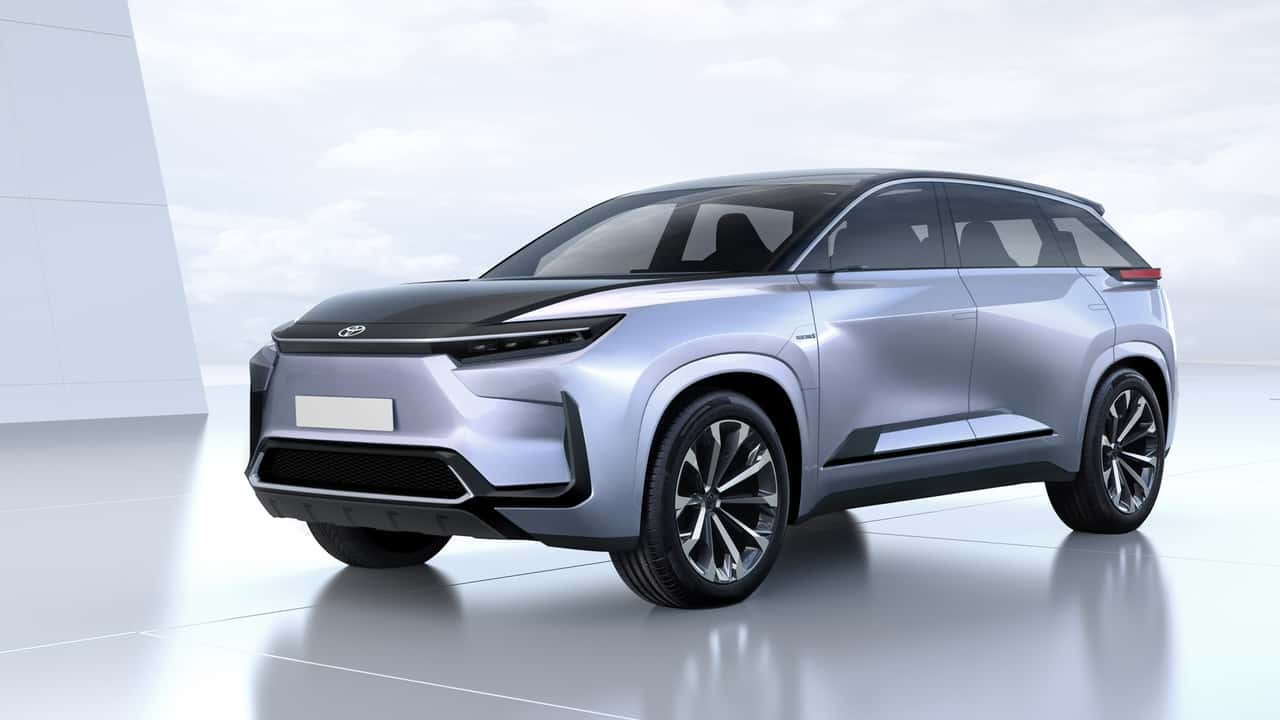- Toyota plans to delay the start of production of its first U.S.-made electric vehicle, Nikkei reported.
- The automaker had planned to start building a large electric SUV in Kentucky in 2025.
- Now that timeline has reportedly slipped to 2026.
You may have to wait a few extra months for your battery-powered Toyota. The company is delaying the start of North American electric-vehicle production by several months, Nikkei reported on Thursday.
The world’s largest automaker by sales initially said it would start building EVs in North America in 2025 at a plant in Kentucky. Now it plans to push that timeline to the first half of 2026, the outlet reports. The new timeline is partially due to changes to the model’s design, Nikkei said.
Toyota did not return a request for comment. Company spokesperson Scott Vazin confirmed the change on Thursday to Reuters, saying, “We’ve always said it would be late 2025 and it could creep into 2026 and it does look like it’s going to creep into 2026.”

Toyota’s Kentucky assembly plant.
The first vehicle planned for the Kentucky plant is a three-row electric SUV—a body style that Americans increasingly crave and which barely exists in EV form. In February, Toyota said it would invest $1.3 billion into the plant to establish assembly lines for vehicles and battery packs. The battery cells themselves are set to come from a new Toyota plant coming online in 2025 in North Carolina.
Only EVs built in North America are eligible for the federal government’s $7,500 purchase incentive for plug-in vehicles, which gives global automakers a big reason to establish EV production domestically. (Leased EVs qualify no matter what, but ones purchased outright need to satisfy the final assembly requirement.) The Inflation Reduction Act of 2022 established tax credits that incentivize domestic battery production, too.
While Toyota’s move could be all about vehicle design (or supply disruptions, as Reuters previously reported) one can’t ignore the backdrop here. The momentum behind EV sales growth has slowed, particularly in some parts of Europe and the U.S. Sales of electric cars are still growing, just not as ferociously as they were in years past. That trend has pushed automakers including General Motors, Ford, Volvo and Mercedes-Benz to rethink their EV strategies and pull back their more aggressive sales targets.

The Toyota bZ4X is one of two electric vehicles sold by the automaker in the U.S., and the only one sold under the Toyota brand.
Toyota has been reprioritizing too. It recently cut its EV production target for 2026. And, according to Nikkei’s reporting on Thursday, it has ditched a plan to make Lexus EVs in North America by the end of this decade.
Toyota had already been approaching the electric future with more caution than some global rivals, insisting that hybrids are the more practical approach for reducing carbon emissions for the near term. While Toyota only sells two EVs in the U.S. right now, it sells nearly 30 hybrids and sales of those vehicles have been on a tear as of late.
Still, Toyota still has big plans for fully electric cars, too. A Toyota spokesman told Reuters on Thursday that Toyota plans to launch between five and seven EV models in the U.S. in the next two years.
Contact the author: tim.levin@insideevs.com
According to recent reports, Toyota has announced a delay in the production of its first U.S.-made electric vehicle (EV). The company had originally planned to release the EV in early 2022, but now it seems that timeline has been pushed back.
This news comes as a surprise to many, as Toyota has been a leader in the automotive industry for years and has been quick to adapt to new technologies and market demands. The delay in production is said to be due to supply chain issues and challenges related to the production of electric vehicles. The company has been working on transitioning to a more sustainable model of transportation, but it appears that some roadblocks have hindered their progress.
The U.S. market for electric vehicles is growing rapidly, with more consumers seeking environmentally friendly transportation options. Toyota has recognized this trend and has been working on developing its own electric vehicles to meet the demand. However, the delay in production of their first U.S.-made EV could potentially put them behind their competitors in the market.
Despite the setback, Toyota remains committed to producing electric vehicles and has stated that they are working diligently to resolve the production issues. The company has not announced a new release date for the EV, but they are hopeful that they will be able to bring it to market soon.
In the meantime, Toyota continues to focus on developing sustainable transportation solutions and remains dedicated to reducing their carbon footprint. The delay in production of their first U.S.-made EV is certainly a setback, but it is clear that Toyota is committed to becoming a key player in the electric vehicle market in the near future.

